The Intergovernmental Panel on Climate Change released its report on Monday, stating it is now beyond a shadow of a doubt that climate change will not leave anyone untouched and that "the worst is yet to come."
Yet, without any apparent sense of irony, ExxonMobil launched its own report on the same day as the IPCC release, reassuring its investors that "carbon-based fuels will continue to meet about three-quarters of global energy needs through 2040." If we listen to ExxonMobil, it would be no exaggeration to say we can kiss the world as we know it goodbye.
Fortunately, we don't need to. The IPCC makes clear that taking decisive action now will save lives and money. In fact, reducing carbon pollution rapidly and immediately can cut the overall economic damages of climate change in half. We will hear more on this topic when part three of the report – on mitigation options – is released in Berlin next week.
Given that the IPCC first sounded the alarm nearly 25 years ago, it's fair to ask why governments are more likely to take heed this time around.
First, governments have already promised to do what's necessary to hold temperature rise below 2C. Second, combating climate change makes good economic sense. Investing in energy efficiency creates jobs, and in the US alone would save hundreds of billions of dollars on energy bills.
Governments could generate additional benefits by phasing out the wasteful subsidiing of fossil fuels. Producer subsidies and tax credits which create corporate incentives for new exploration and development should be the first to go. For the same money, we should increase the development of clean, renewable energy.
Don't believe anyone who tells you that a 100% renewable energy-powered future is unrealistic. There are no technical barriers to addressing the climate crisis. The only thing missing is political will and leadership. The race to put a man on the moon is evidence enough of what can be accomplished when there is the political will to do so.
So how do we generate that necessary political will?
Business and financial leaders, pension fund managers, religious and labour leaders, and people from all walks of life are joining the fight to prevent catastrophic climate change. It is becoming increasingly obvious that climate change is not only about protecting polar bears or the environment, but is fundamentally about people – about jobs, food, water, children, and quality of life. Global change will only happen when people perceive it as relevant to their daily struggles and priorities – and at this critical moment in history, people are connecting the dots. As leaders of the two largest international climate networks, we are optimistic that a political tipping point is approaching.
Heads of state and government will gather at the United Nations this September for a summit which will focus exclusively on climate change. This represents a historic opportunity for our leaders to address the crisis head on, and for civil society to demand it of them. They must announce bold actions at the national and local levels which go far beyond the status quo.
To remain within relatively safe limits of temperature rise, we can't bow to the will of the likes of ExxonMobil. The science tells us that we need to phase out greenhouse gas emissions by around the middle of the century. Admittedly, this is a challenging goal but unless we want to consign our children and grandchildren to a world reminiscent of a post-apocalyptic B-movie, it's a challenge worth accepting.
So is it too late, or is it not too late? That is not a question, but a choice.
Kelly Rigg is the executive director of the Global Call to Climate Action, a network of more than 400 non-profit organisations. Follow @kellyrigg on Twitter.
Wael Hmaidan is director of Climate Action Network International. CAN is a network of more than 850 NGOs from 100 countries working together to fight the climate crisis. Follow @whmaidan on Twitter
Join the community of global development professionals and experts. Become a GDPN member to get more stories like this direct to your inbox
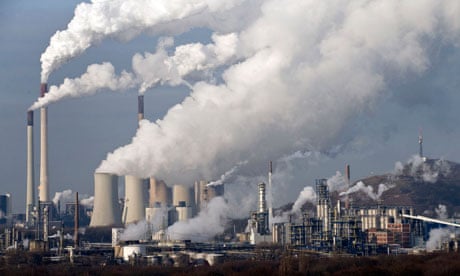
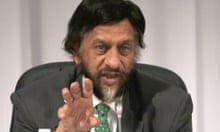
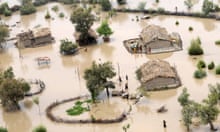
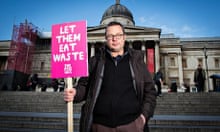



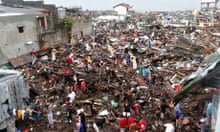

Comments (…)
Sign in or create your Guardian account to join the discussion